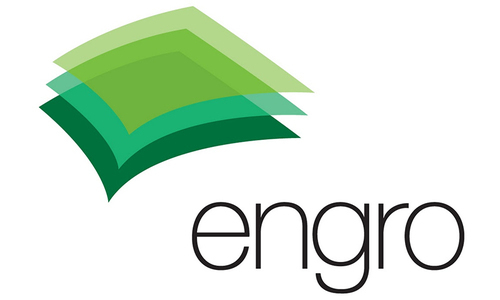KARACHI: Apparently opposing the setting up of more offshore terminals of Liquefied Natural Gas (RLNG) to enhance growing gas demand in the country through Floating Storage and Regasification Units (FSRU), Engro Corporation is seeking expansion of existing terminals followed by development of onshore terminal to resolve the gas crisis.
Briefing journalists on Friday, Chief Executive Officer of Engro Elengy Terminal (EETL) Yusuf Siddiqui confirmed that the company was planning an onshore terminal for which space has been allocated at its existing venue, close to its FSRU — commonly known as Terminal-1— that would also help create land-based storage for LNG, direly needed to support gas supplies and address fragilities.
To curtail the gas crisis, Pakistan must prioritise the expansion of existing terminals under the approved Third-Party Access (TPA) rules on an immediate basis, while eventually transitioning towards onshore terminals for greater energy security, he said.
Need stressed to remove hurdles in way of operationalisation of terminals’ additional capacity
Highlighting the achievements of EETL, Mr Siddiqui said the company has set new industry benchmarks in over five years of its safe and essentially non-stop operations with an availability factor of around 98pc. EETL now contributes around 15 per cent gas supplies to Pakistan and can be considered the country’s largest “gas field” (630-690 mmscfd).
Head of Commercial & Business Development Syed Ammar Ali Shah agreed that the proposed onshore terminal may not remain viable or will be at least delayed in case the two merchant FSRUs taken in hand by two parties -- Tabeer and Energas -- are completed.
Responding to a question, he said his company believed an integrated LNG terminal was necessary to be up and running before 2030 when the country’s gas shortage would surge beyond three billion cubic feet per day. He said unlike the existing EETL, the future facility would be without any government involvement.
Mr Siddiqui said that as the most utilised regasification terminal in the world, Terminal-1 had enabled Pakistan to save more than $3bn through import substitution of furnace oil.
Since its inception, the EETL has achieved send-out of more than 1,200bn cubic feet (BCF) of RLNG/natural gas. Further, its partnership with world-class organisations like Royal Vopak of the Netherlands has brought global expertise and foreign investment to Pakistan for the development of the LNG sector.
He said that LNG imports, which now constitute around 30pc of the total gas supply mix, have been instrumental to bridge energy shortages as the production of indigenous gas continues to decline drastically.
To mitigate gas shortfall in future, the government has adopted a favourable policy of encouraging private sector involvement in the LNG sector, but there is a need to remove any roadblocks that impede operationalisation of additional capacity of existing LNG terminals under TPA rules, as allowed under the LNG Policy 2011 and LNG Supply Agreement (LSA) with the Sui Southern Gas Company (SSGC).
The TPA will allow private players to have access to the terminal capacity and bring LNG in the country, with no guarantee or liability required by the Government or state-owned entities. This step will facilitate LNG market development as a whole and mitigate circular debt in the gas sector.
While the expansion of existing terminals offers a short-term and quickest possible solution to bridge the supply-demand gap, Pakistan must eventually shift its focus from FSRU-based terminals to onshore LNG terminal. Based on global experience, Mr Yusuf stated that the deployment of first or second FSRU is followed by an onshore terminal to ensure energy security, longevity of gas market and creation of a strategic national asset for the country.
With an expected capital outlay of $500-600 million, Engro Corporation and Royal Vopak are evaluating the development of Pakistan’s first multi-functional onshore LNG terminal that will offer regasification, bunkering and LNG trucking services.
If approved, the project will be built in a phased approach on open access terminal concept. The onshore terminal would result in reduced foreign exchange outflow compared to FSRUs, create greater market competition and help optimise the LNG supply chain.
Mr Shah said the government had also asked the company to consider expanding its existing terminal by about 150mmcfd, a proposal Engro had been advocating without any success because of hesitance shown by the SSGC to overcome legal challenges.
Published in Dawn, December 18th, 2021














































Dear visitor, the comments section is undergoing an overhaul and will return soon.